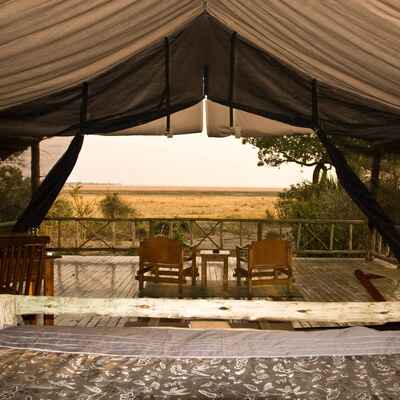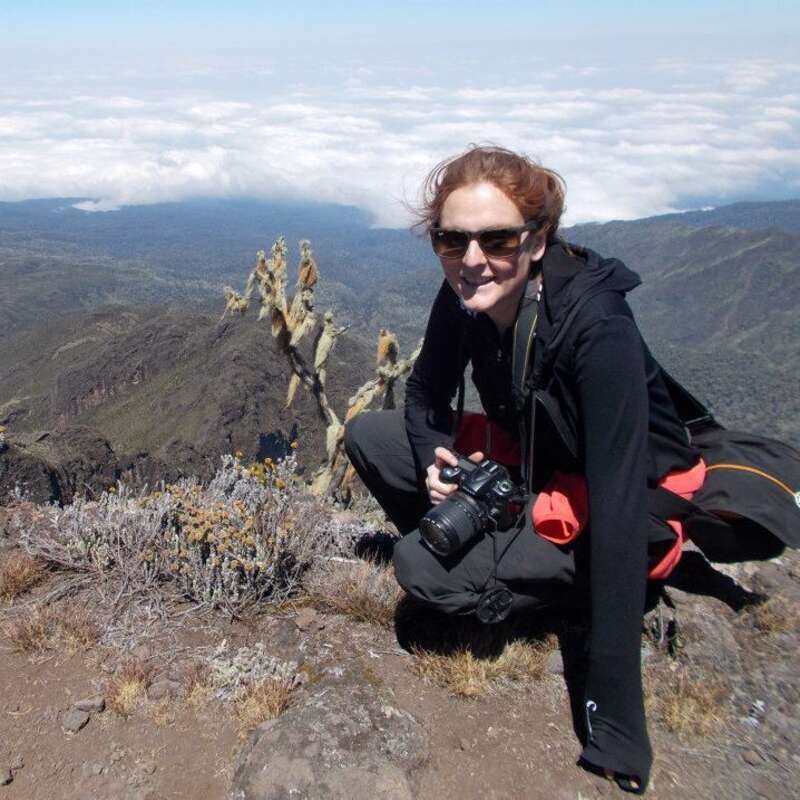About Katavi Wildlife Camp
One of only four camps in Tanzania’s very remote Katavi National Park, the simple Katavi Wildlife Camp has ...
... a fine location on the edge of the Katasunga Plains, close to the park’s main airstrip. This is quite a traditional tented camp, and doesn’t promise anything more elaborate.
We really liked the Foxes’ Katavi Wildlife Camp. It was simple but very nicely styled, spacious and in a great location. It also has a slightly more personal feel than its sister camps in Selous and Ruaha, so is a nice option in this remote park.
Accommodation
6 tents
Children
Best for 12+
Open
June–February
Activities

4WD Safari

Birdwatching

Private activities
Traveller reviews of Katavi Wildlife Camp
4 real, un-edited reviews from Expert Africa's travellers.
Arrived 23 Feb 2017, 4 nights
"Wonderful Katavi"
Overall rating: Excellent
Arrived 27 Oct 2016, 4 nights
"Wild Africa at it's best."
Overall rating: Excellent
Arrived 29 Jan 2015, 4 nights
"Brilliant wilderness"
Overall rating: Excellent
Arrived 12 Aug 2013, 3 nights
"Katavi Wilderness Camp review"
Overall rating: Excellent
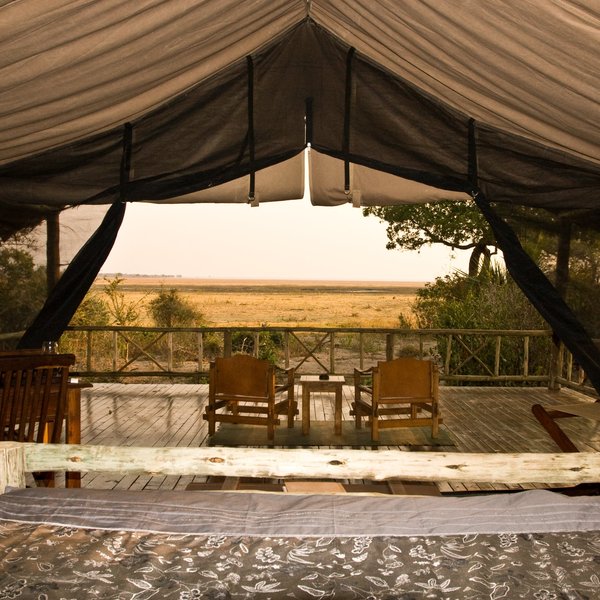
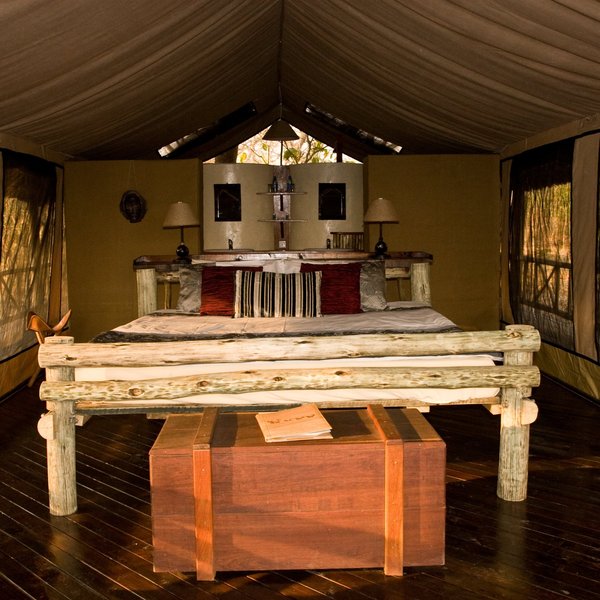
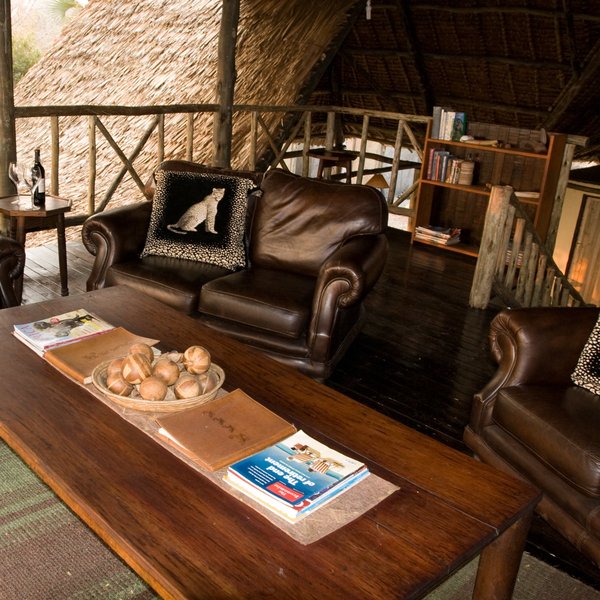
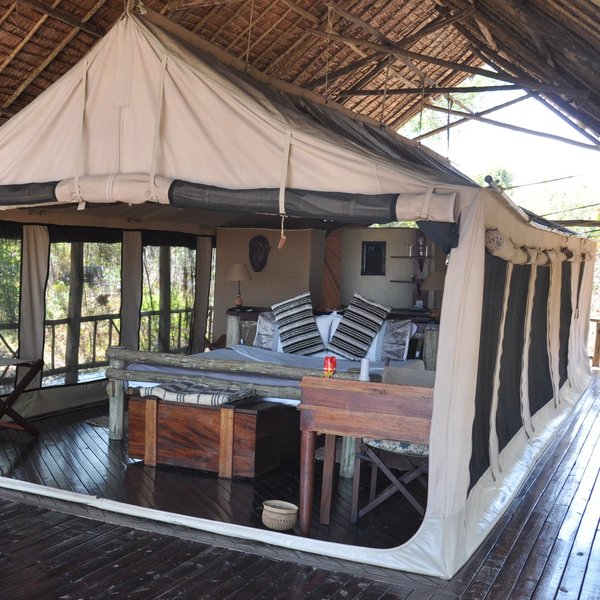
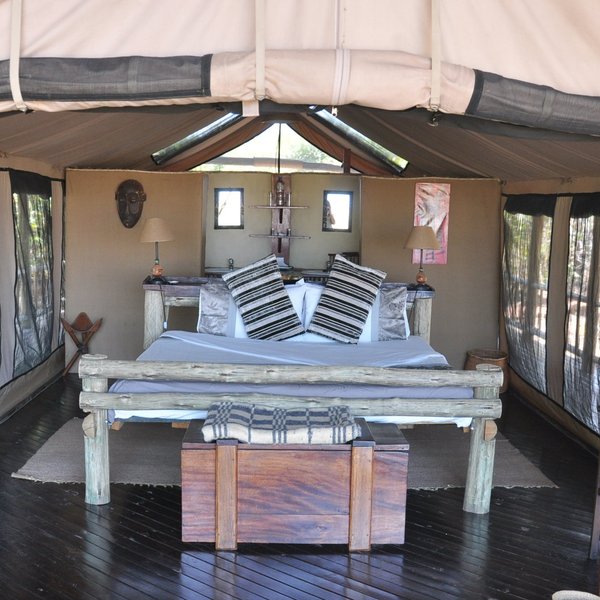
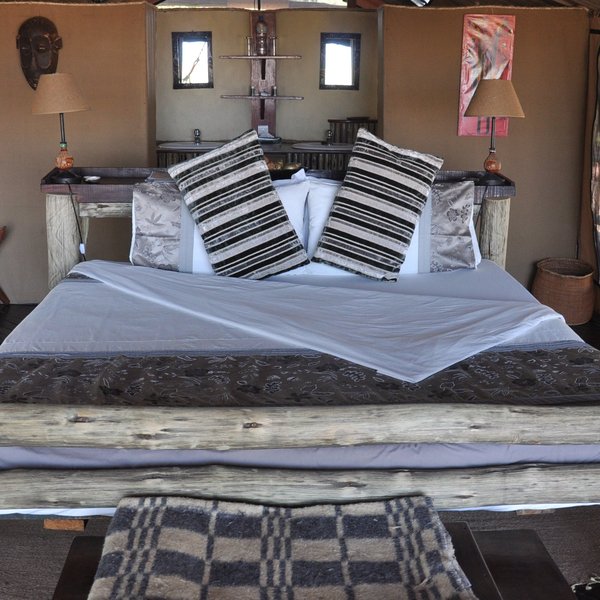
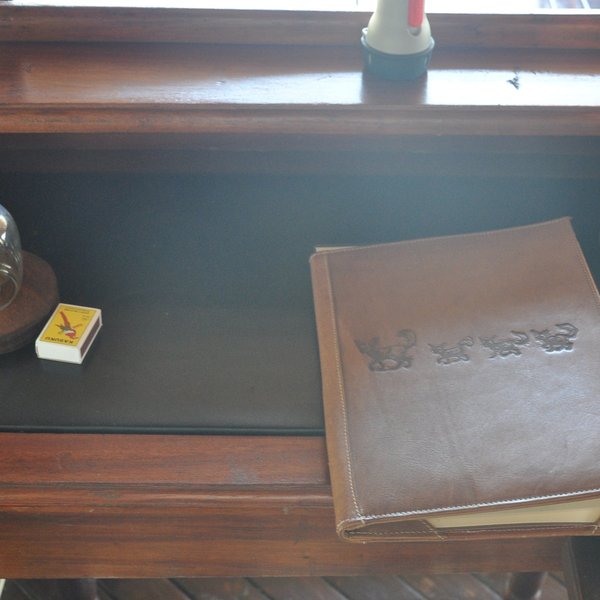
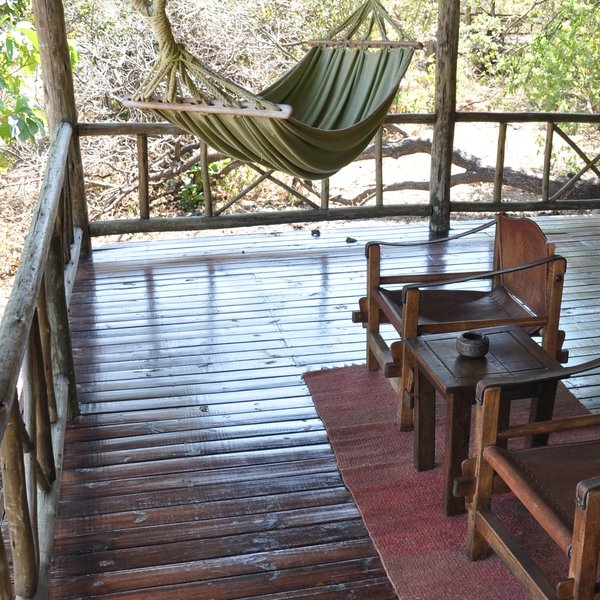
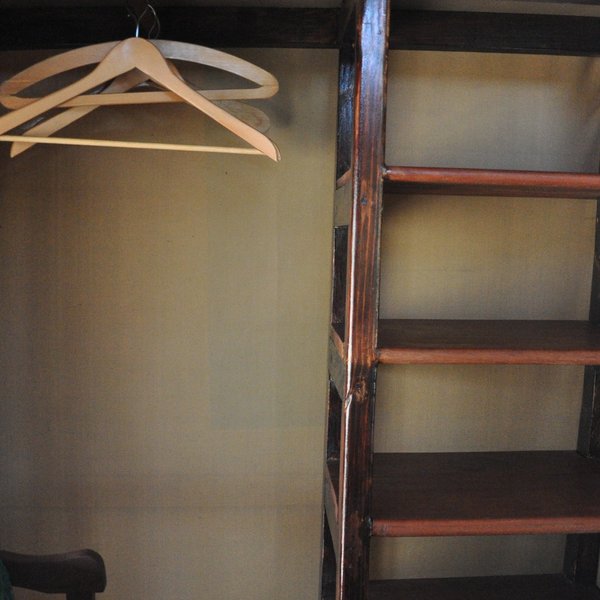

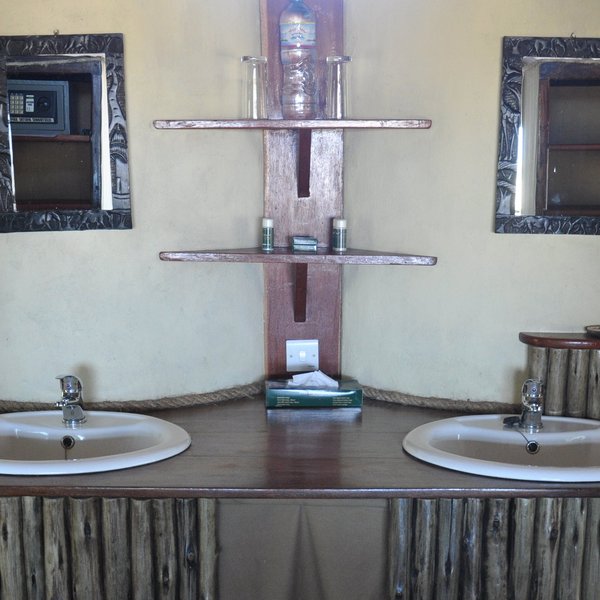
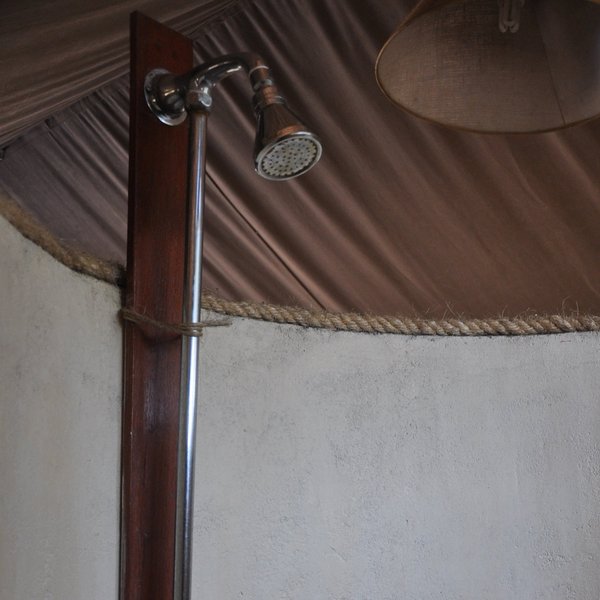
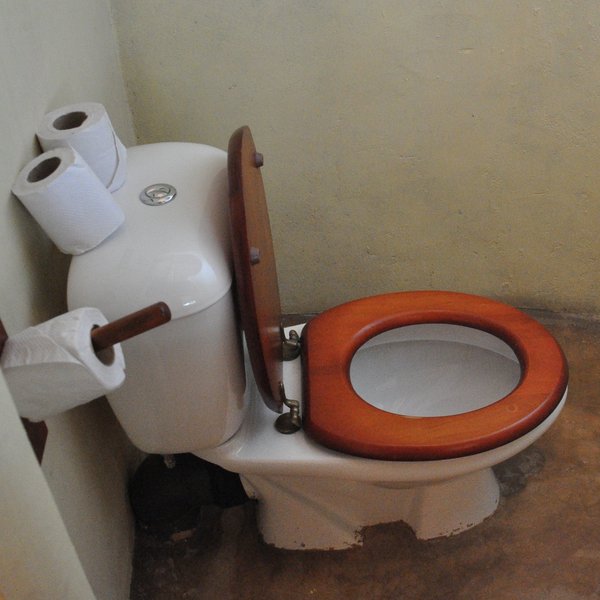
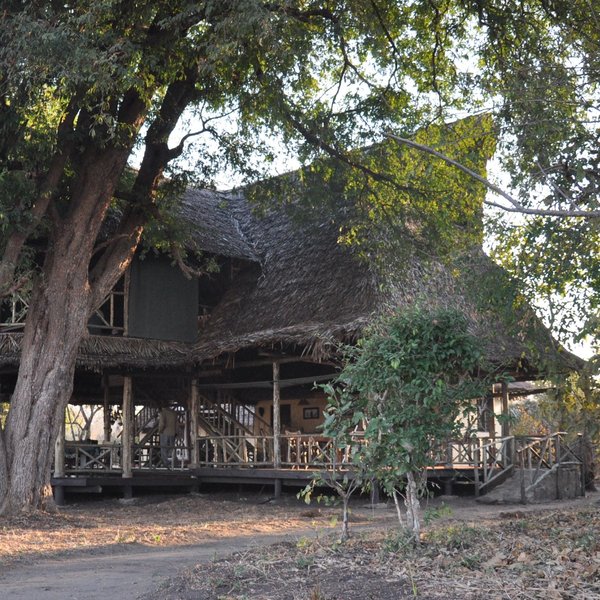
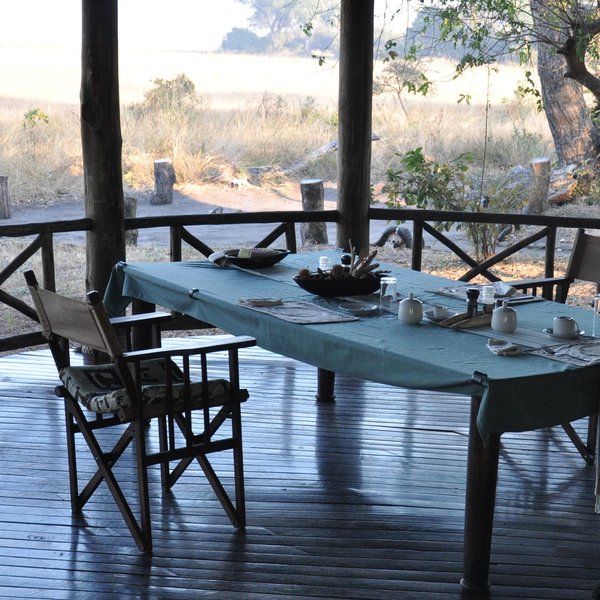
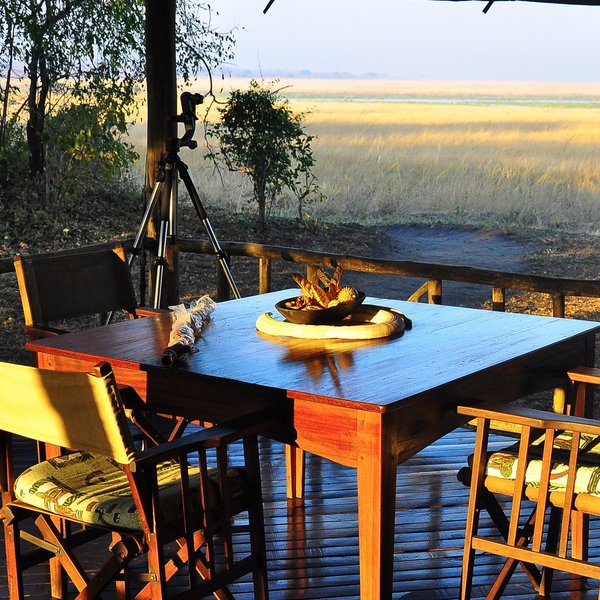
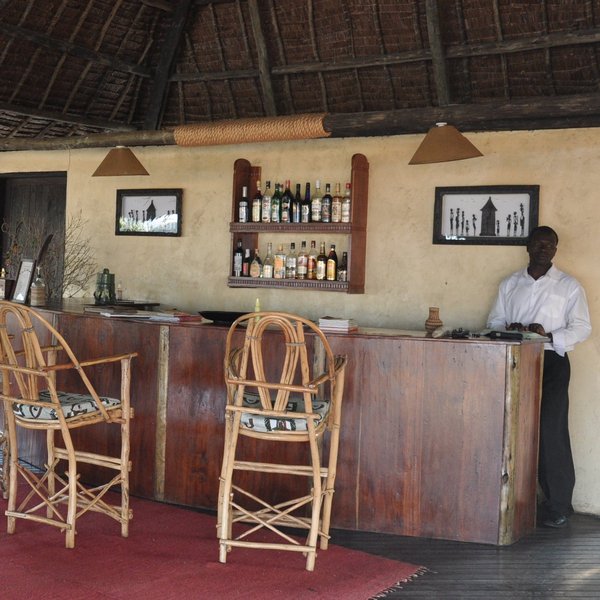
Expert Africa's gallery
When we travel we take lots of photos ourselves to give you a real and un-edited view of the safaris. See our 18 pictures of Katavi Wildlife Camp to get the candid view.
View galleryKatavi Wildlife Camp: Our full report
One of only four camps in Tanzania’s very remote Katavi National Park, the simple Katavi Wildlife Camp has ...
... a fine location on the edge of the Katasunga Plains, close to the park’s main airstrip. This is quite a traditional tented camp, and doesn’t promise anything more elaborate.
Katavi Wildlife Camp is owned and run by the same family team as Ruaha River Lodge and Rufiji River Camp. The family’s surname is Fox, and hence this is sometimes sometimes referred to as ‘Foxes Katavi Wildlife Camp’ or ‘Foxes Wildlife Camp, Katavi’, or even simply ‘Foxes' Camp’!
The experience here at Katavi Wildlife Camp is highly seasonal. From November (once the short rains start) until around the beginning of July (when the park begins to get really dry) the vast plains extending out in front of the lodge turn to swampy marshland, attracting huge quantities of birdlife in the process (there are over 420 recorded species in Katavi). By the end of July, the relentless sun turns the swamps to parched dry plains, along which countless animals trudge to reach the small permanent water source located not far from the camp.
There are currently six tented rooms at Katavi Wildlife Camp, all spread out well overlooking the plain. On our last visit, in June 2013, there were plans to build some new, larger family tents in the near future. We saw the framework for these tents, but they looked to be similar in style, with plenty of space. We were also told they would have small plunge pools but, while these would be appreciated when the temperatures rise, we have to question their appropriateness in a park where water is a scare resource in the dry season.
Each of the current large, cream tents at Foxes’ Katavi Wildlife Camp is suspended under a thatched roof, and raised about half a metre off the ground on wooden decking. The mosquito-net gauze windows on the front and side give the tents a remarkably open and airy feel, allowing the breeze to pass through. This is especially welcome from September onwards, when it can get very hot in Katavi. Each tent is equipped with a small writing desk, luggage rack and wooden-framed beds (three tents have a large double and three have twins).
Each tent has an en-suite bathroom at the back. This has twin sinks, a shower and toilet – all have running water, but because the shower is solar heated, you can really only get hot water at the end of the day. There’s plenty of space to hang your clothes, as well as a small electronic safe for storing valuables. Little touches such as coloured bedspreads and seed-pod ornaments add interest. There’s a large verandah in the front of each tent, still shaded by the thatch. A couple of chairs sit facing the plains, and a hammock is strung up – perfect for siesta time!
The main areas at Katavi Wildlife Camp are completely open-sided, with a high thatched roof and wooden floors. The small lounge and dining area are all open plan with views out onto the plains beyond. By August, when the park has started to get very dry, huge herds of buffalo can regularly be seen in front of the camp. The bar is well stocked and there’s a small mezzanine level with a bookswap.
Geographics
- Location
- Katavi National Park, Tanzania
- Ideal length of stay
- You can stay here for either three or four nights to fit in with the twice-weekly flights in and out of the park (on Mondays and Thursdays)
- Directions
- In the dry season the camp is about a five-minute drive from Katavi airstrip. If there is still a bit of water around then they need to drive slightly further which takes about 30 minutes.
- Accessible by
- Fly-and-Transfer
Food & drink
- Usual board basis
- Full Board & Activities
- Food quality
- Breakfast at Katavi Wildlife Camp is usually a selection of fruits, followed by a cooked breakfast of your choice. Tea, coffee and juice are also available.
Lunch is a buffet meal served in the main dining area. On our last visit, we had a good selection of vegetable samosas, potato wedges, coleslaw salad and garden salad. There were a great variety of chutneys and pickles to accompany the meal. The dessert (flambéed banana) was served to us at the table. It was simple and fresh – perfect.
Dinner is usually eaten as one large group and is a three-course meal. On our visit, we enjoyed tomato-and-olive soup to start, followed by a buffet selection of chicken pilau and rice with fresh vegetables. There was a passion fruit mouse for dessert. Dinner was very good – not too fussy, but with plenty of flavour. - Dining style
- Group Meals
- Dining locations
- Indoor and Outdoor Dining
- Drinks included
- Drinks cost extra.
Children
- Attitude towards children
- The camp welcomes children.
- Property’s age restrictions
- Children aged two and above are accepted.
- Special activities & services
- No
- Equipment
- No
- Generally recommended for children
- Katavi is a very wild park, and so we’d advise that only older children would enjoy it. Best for age 12+. Due to the presence of wildlife, children should be supervised at all times.
Communications
- Power supply notes
- The power is on between 6.30am and 10.30pm.
- Communications
- There is a very limited cellphone reception in Katavi, but for all intents and purposes you should consider yourself out of touch.
- TV & radio
- No
Health & safety
- Malarial protection recommended
- Yes
- Medical care
- They have a first-aid kit on site. For any serious emergencies the camp has links with Safari Airlink who would fly guests out.
- Dangerous animals
- High Risk
- Security measures
- They have askaris (guards) to escort you around the camp as soon as it gets dark.
- Fire safety
- There are fire extinguishers in each room.
Activities
4WD Safari
Birdwatching
Private activities
Extras
- Disabled access
- Laundry facilities
- Included. Laundry takes minimum of 24 hours and all items, including women’s underwear, can be washed.
- Money
- Each tent has an electronic safe to store valuables.
- Accepted payment on location
- The camp can take MasterCard and Visa (with a 5% surcharge), but they don’t have a machine, so they’ll simply take your details and charge you when they can contact the head office. Cash is the best way to pay for any extras here. They normally accept US dollars, British pounds, euros and Tanzanian shillings.
Plan and book your trip with Expert Africa
All of our trips are tailor-made, so we'll always adapt them to suit you. Talk to an Expert and let us plan and arrange your perfect trip.

Talk to an Expert
Call or email us now! We’ll match you with the Specialist in our team who is best suited to help you. Then together we can start planning your trip.

Set up your itinerary
Based on our experience and your ideas, your specialist will create a detailed, costed itinerary. We’ll refine it together, until we have a trip that you’re perfectly happy with.

Prepare for your trip
The same Specialist will make the seamless arrangements for your trip, send you detailed travel documents, and be available to answer any questions before you depart.

Travel with peace of mind
After you set off, you’ll be cared for by our partners in Africa, most of whom have worked with Expert Africa for decades. And if you ever need us urgently, we’re available 24/7.

When you return
We love to learn about your trip, and so will always be grateful if you’ve the time to give feedback to your Specialist when you return.
Katavi Wildlife Camp's location
Look closer at the environment and surroundings of Katavi Wildlife Camp.
Other lodges in Katavi National Park
Alternative places to stay in this same area.
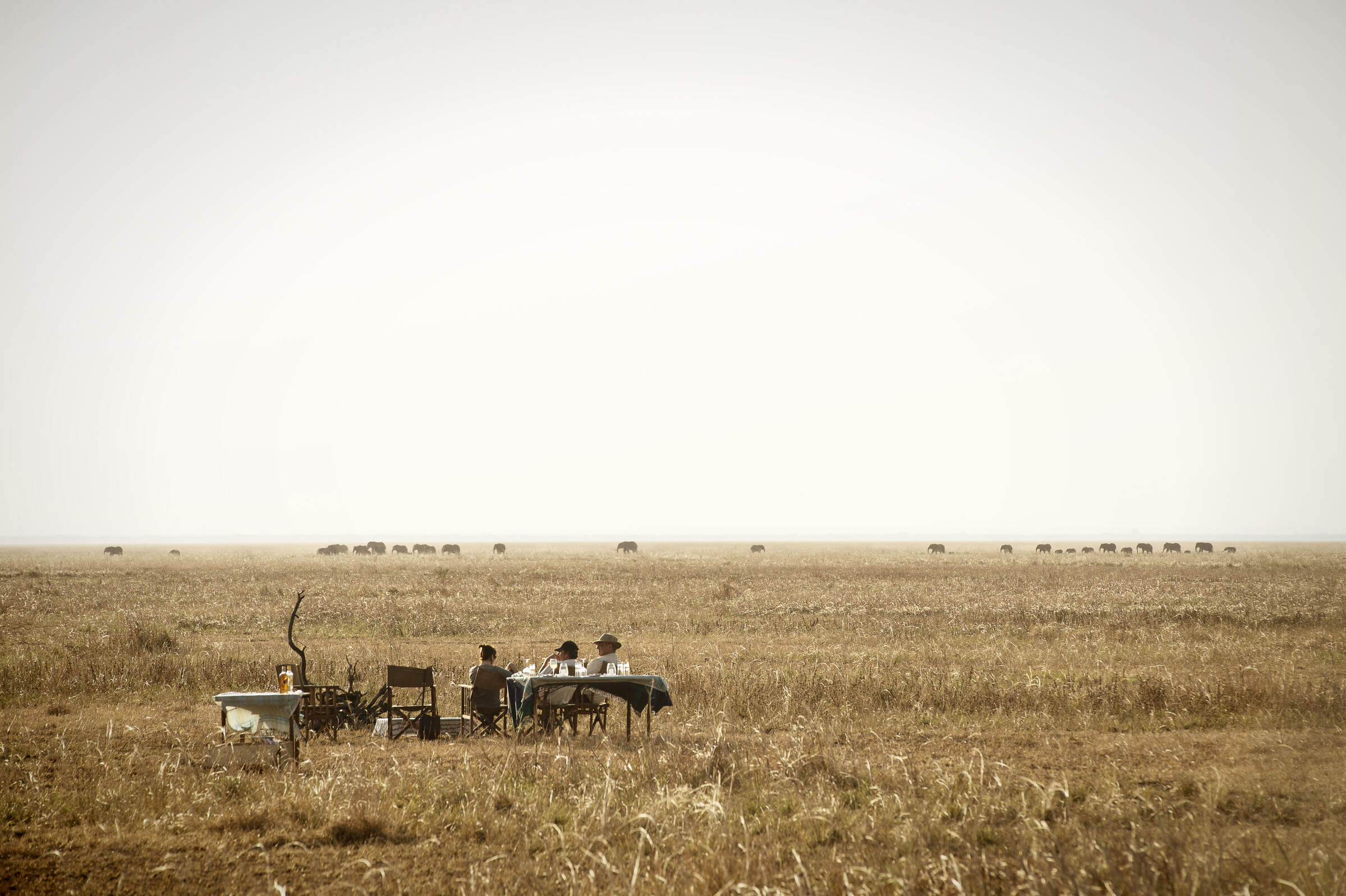
Chada Camp
Chada Camp, in the heart of Tanzania's remote Katavi National Park, is a serious safari camp in a wild and relatively inaccessible part of Africa.
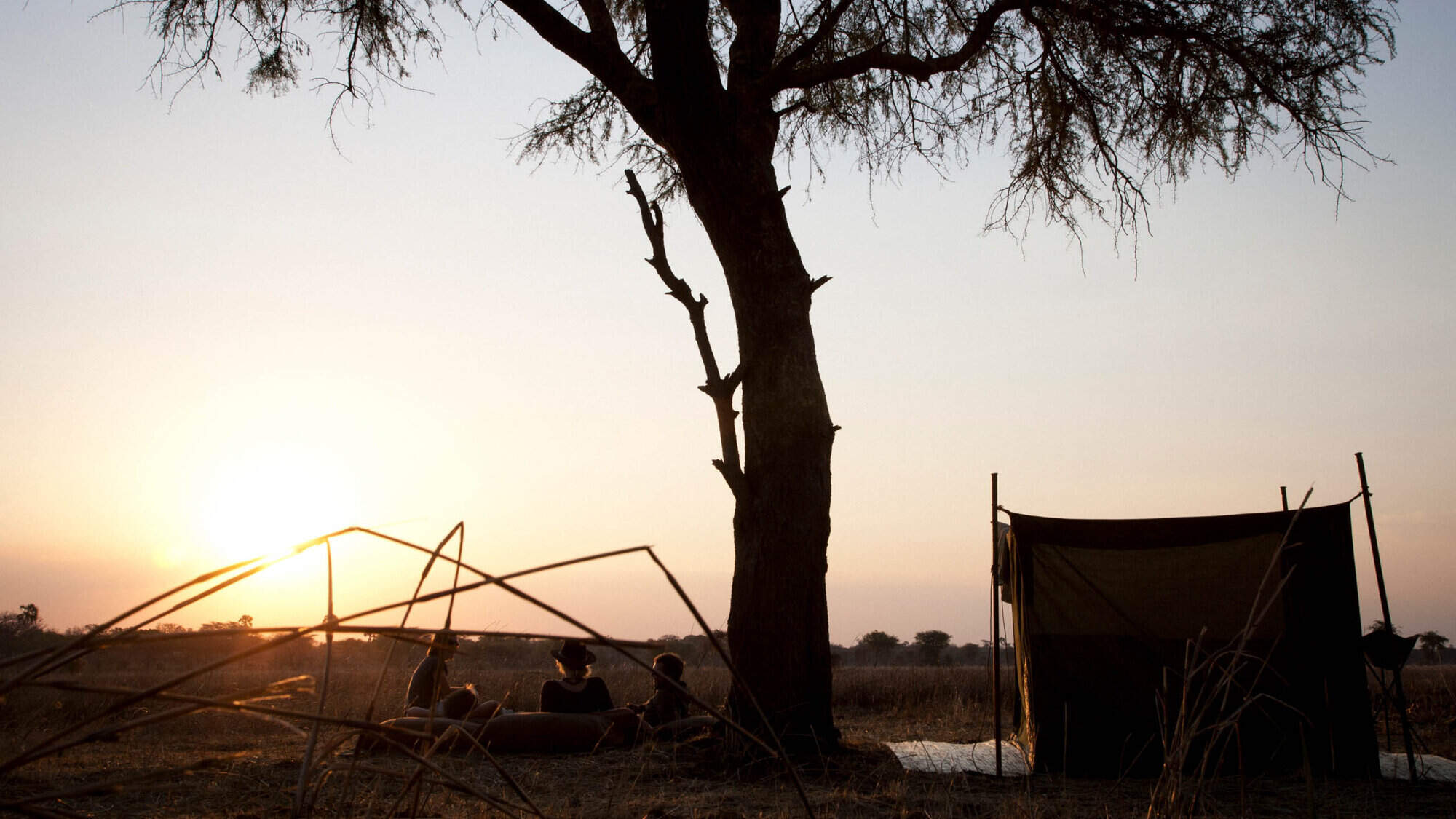
Chada fly-camping
Fly-camping from Chada Camp, in the heart of Tanzania's remote Katavi National Park is as wild as Africa gets.
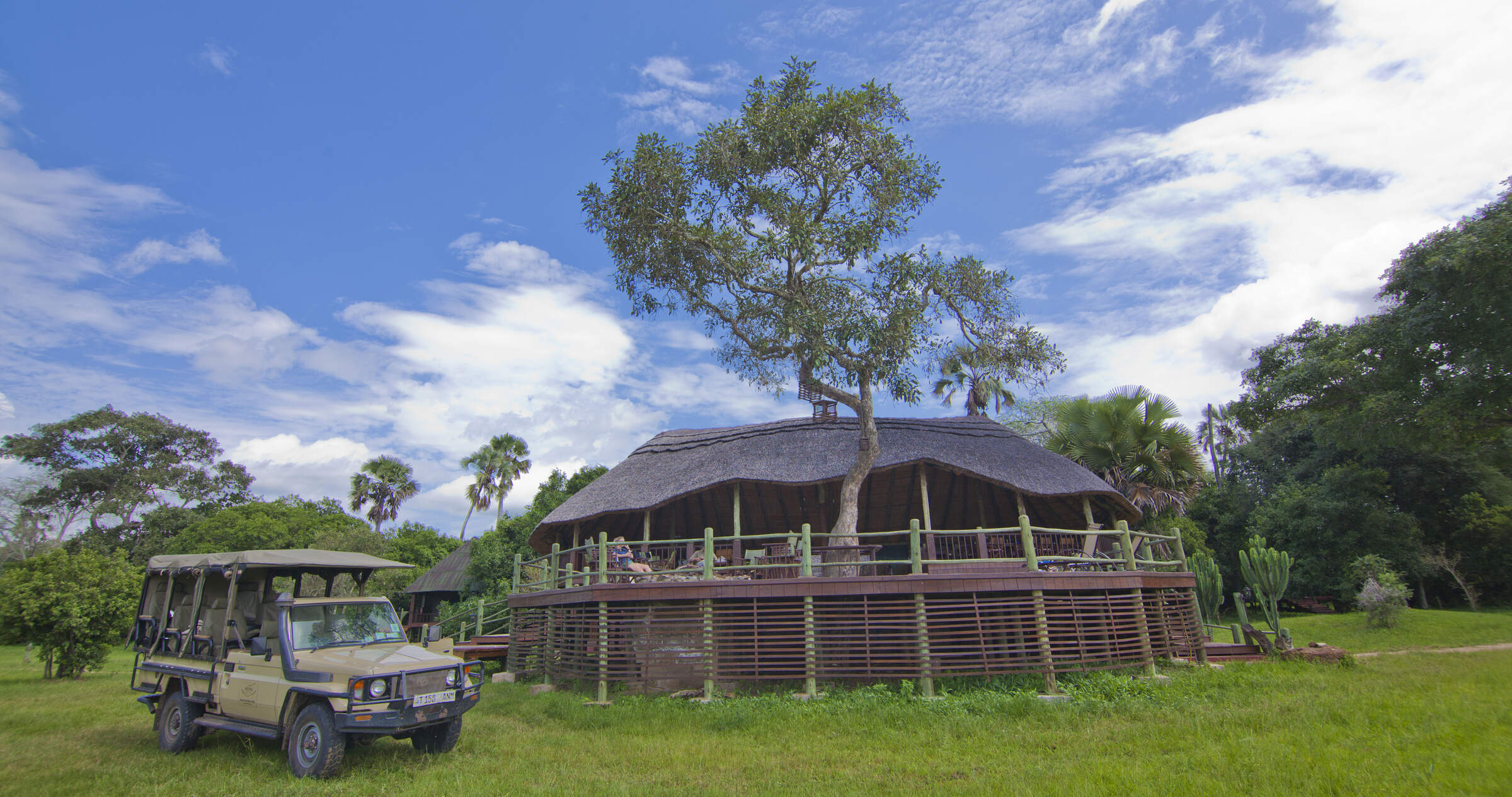
Mbali Mbali Katavi
Mbali Mbali Katavi is a luxury, tented camp situated in the centre of Katavi and the only camp in the park with a swimming pool.
When to go to Katavi National Park
Our month by month guide: What it's like to visit Katavi Wildlife Camp in Katavi National Park
Jan
Feb
Mar
Apr
May
Jun
Jul
Aug
Sep
Oct
Nov
Dec
Tanzania in January
January usually marks the start of the short dry season, although the exact timings of this are a little unpredictable. You can expect clear blue skies and sunshine, if the short rains have stopped, and the temperatures will be building. The short dry season is a little less pronounced in Southern Tanzania, and so it can still be wet in these areas. It is an interesting time for avians as resident birds go into breeding plumage and migrant species can be present.
Once the New Year busy period has quietened down, January can offer great value and quieter parks, although the weather can be variable, and in the Selous and Ruaha the wildlife is more dispersed.
- Variable weather: clear & dry or cloudy with some rain.
- Occasional thunderstorms may occur.
- A good time of year for birding as and many migrant species are around
- The wildebeest migration is gathering in the southern Serengeti.
- Busy in early January, quietening down through the month.
Our view
A good time to visit, with pros & cons
Weather in January
Tanzania in February
February is during the short dry season and is one of the hottest months in Tanzania, with temperatures reaching around 33°Celsius. This can be a good time to visit, as some areas of the Northern Circuit are comparatively quieter than during the European summer months, and lodge rates are also a little lower.
The wildebeest will typically be on the southern plains of the Serengeti for their calving season, which tends to occur in a 2-3 week window in early-mid February – although this does vary year on year. This is also a particularly rewarding time for birdlife, as northern hemisphere migrants join the resident species.
- Hot and dry weather.
- Wildebeest migration calving on Serengeti’s southern plains.
- Ngorongoro Crater and southern Serengeti busy for the migration.
- Selous and Ruaha are typically quiet at this time.
- The parks are likely to be lush and green, leading to pretty landscape
Our view
A very good time to visit
Weather in February
Tanzania in March
The heavier ‘long rains’ start in earnest in March although exactly when varies year on year. With no need to stay close to permanent water sources, migratory wildlife disperses, and so game viewing starts to become more challenging. This is most prominently seen in Tarangire National Park. The wildebeest migration may still be calving, or have moved on into the central regions of the Serengeti.
Many of the camps in the southern parks close mid March and mobile tented camps in the Serengeti will wind down towards the end of the month in order to move location or carry out refurbishments, ready for the new tourist season.
- Hot with building humidity, before the rains begin at some point.
- Wildlife viewing is variable depending on the start of the rains.
- Parks are quiet and rates are low.
- Not great for southern or western Tanzania.
- March can be a good time for birding, with many migrant species.
Our view
A good time to visit, with pros & cons
Weather in March
Tanzania in April
April is in the middle of the long rainy season and is the wettest month, with on average 250mm of rain. Temperatures are fairly high and humid in comparison to the rest of the year. Expect the bush to be lush and flowering, and alive with insects, birds and smaller animals. It is however also dense, allowing wildlife to hide, which in turn makes game viewing harder. This is a very quiet time in terms of visitor numbers.
Many of the tented camps are closed in April, however the larger lodges remain open. The rates are significantly cheaper, and so if you are willing to work harder to spot the bigger game, some accommodation bargains can be had.
- Heavy rain expected, with impressive thunderstorms and lightning.
- Many camps closed and roads impassable due to ground conditions.
- Rates are at their lowest all year round, with very few other tourists
- Places that are open are green and vibrant, wildlife more dispersed.
Our view
This is not a great time to visit
Weather in April
Tanzania in May
As Tanzania is close to the equator there is no dramatic difference in climate throughout the year, but temperatures do start to drop a little in May. The rains are likely to still be present, although potentially clearing towards the end of the month. Visitor numbers and lodge rates are still low. The wildebeest migration is making its way through the western regions of the Serengeti, crossing the Grumeti River.
Virtually all camps in southern Tanzania remain closed, and many of the roads and tracks in the Selous become impassable.
- Heavy rains and storms are likely, this can create some dramatic skies
- Blissfully quiet in northern Tanzania, and a good time to avoid crowds
- The parks are likely to look lush and green, with long grass.
- Wildlife is likely to be more dispersed, with fewer sightings.
- The low prices make safaris much more affordable at this time.
Our view
This is not a great time to visit
Weather in May
Tanzania in June
The rains come to an end at some point during the month and migratory wildlife begins to be drawn back to perennial water sources as the land starts to dry up. It’s likely that the parks will still be quite green and the grass high though, so walking and fly-camping may be unlikely. This marks the start of the season with camps reopening, but prices are still more affordable than the subsequent months.
The migration may still be in the Western Corridor, or on the move northwards towards the Mara River. Western Tanzania presents more challenging conditions for chimpanzee trekking in Mahale National Park, as the chimps are higher in the mountains.
- Variable weather: clear & dry or cloudy with some rain.
- A transitory time for the migration – moving from west to north.
- The parks may still be quite green, and grasses high.
- Wildlife may be dispersed still.
- Relatively low visitor numbers and good value, shoulder season prices.
Our view
A good time to visit, with pros & cons
Weather in June
Tanzania in July
July is considered to be the start of the peak season, with no rainfall expected and pleasant daytime temperatures. As the parks dry, the wildlife congregates in fewer areas, grass is eaten and trampled by the migration, and game viewing gets better and better. The wildebeest are typically arriving in the northern Serengeti, ready to begin their period of crossings of the Mara River.
In the Selous and Ruaha wildlife sightings can be fantastic, with animals gathering around the lakes and rivers. Great conditions and school holidays mean the parks are at their busiest, with Ngorongoro and the Serengeti particularly crowded.
- Dry and warm daytimes, chilly and windy in the mornings and evenings.
- Great wildlife viewing, as water sources diminish.
- The most popular time of year with very high visitor numbers.
- Prices are at their highest due to the great conditions on the ground.
- To avoid the crowds consider Tanzania’s southern parks.
Our view
Fantastic: the very best time to visit
Weather in July
Tanzania in August
August is the middle of the long dry season, with clear skies and sunny weather. You can expect some cooler weather at night and first thing in the morning. Remember to pack layered clothing, so you can wrap up warm on your early morning game drives, but remain comfortable as it heats up throughout the day.
August is a very popular time to visit, so accommodation prices are at their highest and advanced booking is necessary. It can get noticeably busier in some of the northern parks – in particular the Ngorongoro Crater and northern Serengeti, as visitors flock to the area in hope of witnessing an exciting migration river crossing.
- Dry and warm daytimes, chilly in the early mornings and evenings.
- General wildlife viewing should be excellent.
- An exciting time of year for the wildebeest migration.
- Certain areas will be very busy and camps fill up fast.
- Great wildlife sightings in the Selous and Ruaha, and fewer people.
Our view
Fantastic: the very best time to visit
Weather in August
Tanzania in September
September can be an excellent time of year to visit Tanzania. As the parks continue to dry up the wildlife becomes increasingly reliant on the remaining water sources, leading to high densities of animals. Whilst early September can be busy, with fewer families traveling at this time the parks typically become quieter as the month goes on.
You are still likely to see the wildebeest migration in the northern Serengeti, with river crossings occurring on a regular basis. Tanzania’s southern parks are also fantastic at this time of year, generally receiving far fewer visitors than the north, and wildlife sightings can be great. Prices remain high and the weather generally remains good.
- Wildlife viewing in September can be fantastic.
- Whilst still fairly busy, often the parks are typically a little quiet
- The parks will start to become very dry, with little new vegetation
- Cooler mornings and evenings, warming up during the day.
- Prices remain high.
Our view
Fantastic: the very best time to visit
Weather in September
Tanzania in October
At the tail end of the dry season, the wildlife should be the easiest to spot, although photographers should be aware that it can be a bit dusty at this time of year, as there has been no rain for several months. Great general wildlife viewing throughout as animals are attracted to remaining sources of water. Elephant numbers are particularly high at this time in Tarangire, and Mahale and Katavi are especially rewarding with frequent wildlife sightings close to camp.
There is a chance of rainfall towards the end of the month, if the short rains commence. While prices remain high, visitors numbers are significantly lower than in July-August.
- Mostly dry and temperatures comfortably warm, with the chance of storm
- Great game viewing although the landscape can be a bit barren.
- Much lower visitor numbers than the earlier months.
Our view
A very good time to visit
Weather in October
Tanzania in November
In November you can expect the start of the short rains, although the start date varies every year. The rains are highly localised, and are much lighter and more unpredictable than the long rains that occur earlier in the year. These should not really interfere with your safari – as the game viewing at this time is still good - but you should pack a waterproof jacket and be prepared for some short rain showers!
The majority of tented camps remain open, but some of the mobile camps in Northern Tanzania will close for the latter half on the month. Given the seasonality, camps are charging shoulder season rates so there are often some bargains to be had. Early November can offer great value for money and the weather conditions are likely to be comparable to late October.
- Variable weather: clear & dry or cloudy with some rain.
- Parks are comparatively quiet and prices at the lower end.
- Some camps will close towards the end of the month for maintenance.
- Good wildlife sightings, but animals will disperse when rain starts
- The wildebeest migration is on the move and the location unpredictable
Our view
A good time to visit, with pros & cons
Weather in November
Tanzania in December
December is also during the short rainy period, but this does not stop Tanzania being a popular destination to spend the festive period. Be aware that many of the lodges book up early, and charge peak rates over this time. Advanced booking is essential over this period, especially if travelling in larger family groups.
Travelling in December outside of the festive period allows travellers to make use of excellent shoulder season rates. Temperatures are pleasant with the averages of 27Celsius, although there is the chance of intermittent thunderstorms.
- Variable weather:clear & dry or cloudy with some rain and thunderstorm
- Good general game viewing in parks with low seasonality - Serengeti.
- Very quiet early in the month, becoming exceptionally busy.
- Prices reflect this – great value rising to the highest they are.
- The wildlife in southern Tanzania is more dispersed.
Our view
A good time to visit, with pros & cons
Weather in December

Looking for inspiration on where to travel next?
Visit our trip chooser to explore your options and find inspiration for your perfect African adventure
Inspire me